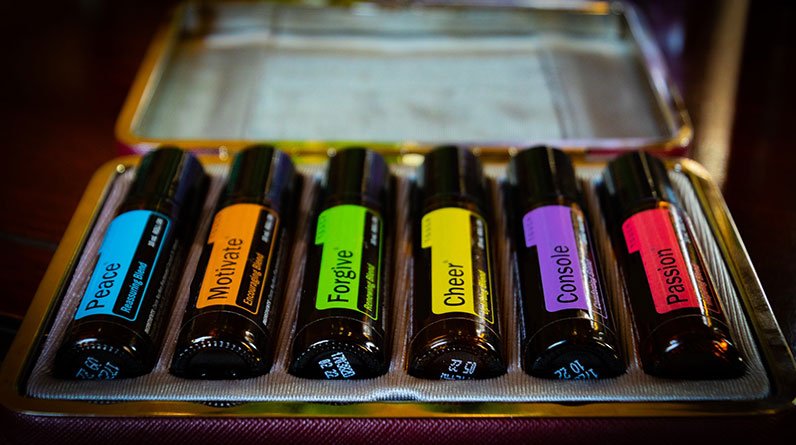
Stress and Anxiety Relief
Anxiety is a common mood disorder that can be very disruptive to daily life. If you’re struggling with it, try using essential oils to relieve your anxiety and boost your mental health.
Essential oils have been proven to reduce stress and improve mental wellness by triggering the release of calming neurochemicals in the brain. They’re easy to use and can be a great addition to your self-care routine.
Lavender
Lavender essential oil has long been considered one of the best aromatherapy oils for stress and anxiety. It is also known to help with sleep problems, including insomnia.
To experience the benefits of lavender, add a few drops to your bath or mix it in with a blend of other relaxing oils, like cedarwood essential oil. You can also diffuse it into the air.
Another way to use lavender is by applying it topically. You can do this by rubbing a few drops of lavender onto your wrists, under your nose, behind your ears or on your neck.
Massaging a few drops of lavender into the back of your neck can also help with easing anxiety symptoms. This can be particularly helpful if you’re feeling anxious about a specific event or a stressful day ahead.
Applying a few drops of lavender to your feet before bed can also help you relax and sleep better at night. It can also reduce menstrual cramps, especially when you massage it into your abdomen before and after a period.
You can also consume lavender oil by adding it to a hot cup of tea. This is especially beneficial for folks with generalized anxiety disorder (GAD), as it helps to alleviate symptoms and decrease the need for antidepressant medications.
When taking lavender for anxiety, it is important to use a high-quality essential oil. Avoid brands that are not reputable or do not have a reputation for purity.
It is also a good idea to consult with your health care provider before you begin using lavender for anxiety. Sometimes, the symptoms you’re experiencing may indicate something more serious than anxiety.
Before consuming any essential oils, you should always do a patch test to ensure that it is safe for you. This is especially true if you are pregnant, breastfeeding, or have a chronic illness.
Rosemary
Rosemary essential oil is a natural, safe and effective alternative for stress relief. This is because it lowers cortisol levels, which are a hormone that helps regulate your body’s reaction to stress. It also has anti-inflammatory properties, which can help ease common aches and pains.
Be sure to choose a high-quality product that’s organic, therapeutic-grade and pure.
It’s also a good choice for people who want to boost their mood and prevent depression. It can be used on its own or mixed with other essential oils.
In addition to helping reduce anxiety, rosemary essential oil is also a powerful anti-inflammatory. Its chemical composition includes camphor, which can help reduce joint inflammation and skin irritation. It also has antimicrobial and anti-fungal properties that can help kill harmful bacteria.
Rosemary has a woody, evergreen fragrance that’s reminiscent of pine needles. This makes it a popular choice for use in aromatherapy, where it’s used to relieve nervous tension and promote relaxation.
It’s also an effective treatment for chronic headaches, nausea and indigestion. Inhaling rosemary oil can improve the health of your digestive tract and liver by regulating bile flow.
Bear in mind, rosemary oil is contraindicated during pregnancy or breastfeeding, and it may interact with some medications. It’s also not recommended for young children or pets, as it can cause an allergic reaction if it comes in contact with their skin.
To use rosemary as an essential oil for stress and anxiety relief, you can diffuse it in a room or apply it topically to the chest and neck. You can also mix it with a carrier oil and rub it into your skin. Just remember to dilute it with a neutral oil to avoid any skin irritation or burns.
Clary Sage
Clary sage essential oil is an euphoric, antidepressant-like essential oil that also helps to ease stress and anxiety. It has a sweet and herbaceous scent with a nutty undertone.
It is a popular aromatherapy oil that is often infused into skincare products as it soothes and balances hormones. It is known to be helpful for menopausal symptoms, reduces menstrual cramps, and promotes healthy digestion.
For a relaxing bath, a few drops of clary sage can be added to a tub filled with warm water for a fragrant, stress-relieving soak that promotes restful sleep. You can also add a few drops to a diffuser for inhalation during the day when you need a boost of energy and focus.
The antibacterial, anti-inflammatory and astringent properties of clary sage can help to prevent the formation of bacteria that may lead to infections. It can also be used to treat bacterial skin conditions such as acne and to relieve blemishes on the face.
A study published in the Journal of Phytotherapy Research found that inhaling clary sage could help to lower cortisol, which is the body’s stress hormone, by 36 percent. This is great news for women who experience a lot of stress due to menstruation, menopause or other life events.
Another benefit of clary sage is that it can help to boost the secretion of gastric juices and bile, which can speed up the digestive process. It is also thought to be useful for preventing stomach disorders, including ulcers and indigestion.
It is also believed that the antidepressant and calming effects of clary sage can reduce a person’s emotional stress, which is beneficial for those with depression. It can also be used to combat anxiety and other mental health issues, such as panic attacks.
As with any type of essential oil, it is important to use only high-quality, pure oils from reputable companies. Make sure you read the label thoroughly and follow any directions on the bottle.
Whether you choose to breathe the oil straight from the bottle, diffuse it or use it topically, it’s best to always use pure, natural essential oils that are safe for use by children and pregnant women. It is also advisable to consult with a physician or other medical professional before beginning any new wellness regimen, especially if you are taking medication for an anxiety disorder.
Bergamot
Bergamot essential oil is a popular choice for aromatherapy, because it has uplifting, calming, and refreshing effects. It also helps to reduce feelings of anxiety, stress, and depression. It is a powerful anti-inflammatory and has a calming effect on the brain. It also has antiseptic and antibacterial properties.
It can be used as a massage oil or added to a bath, making it an excellent choice for relieving stress and tension throughout the body. It also helps to ease digestive issues.
If you suffer from insomnia, bergamot oil may help to improve your sleep quality. In addition, it has been found to help reduce blood pressure and improve mental health.
Inhaling bergamot oil can also help to relieve depression and imbalanced moods by signaling the brain to release dopamine and serotonin. This can make it a great alternative to taking pharmaceutical drugs for these conditions, which often have severe side effects.
Because bergamot essential oil has anti-inflammatory properties, it can also be used as a natural painkiller. It stimulates the hormones in the brain that reduce pain sensitivity and promotes healing. It is a good alternative to over-the-counter pain medication, and it is safe for people with diabetes.
You can use bergamot oil to soothe inflammation and redness from an injury or skin infection, by applying it directly to the affected area. This essential oil is also an effective treatment for cellulitis and ringworm.
Bergamot oil is also a good option for balancing the complexion and helping to control acne. It can prevent acne-causing bacteria from gathering in the pores, and it has been shown to reduce hyperpigmentation.
A study published in Japan showed that inhaling bergamot oil mixed with water vapor reduced feelings of stress and fatigue. Its positive mood-boosting benefits may be due to its ability to lower cortisol levels in the body, a hormone that contributes to feeling stressed.
Adding a few drops to a warm bath can also relax the body and calm emotions. You can also mix it with other oils for an uplifting aromatherapy blend. Just be sure to apply a carrier oil or use a diluted form to avoid irritation on your skin.
In conclusion, essential oils can be a great tool to help relieve stress and anxiety. They are natural, easy to use, and offer a range of benefits. Try incorporating lavender, rosemary, clary sage, and bergamot into your self-care routine to experience their calming and anxiety-reducing effects.

